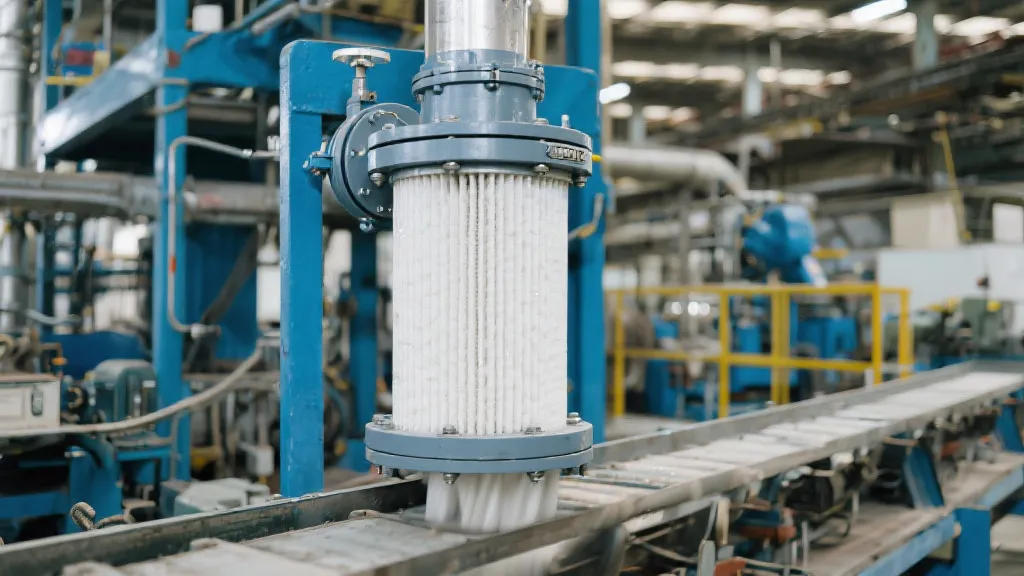Stauff filters are pivotal in maintaining the efficiency and longevity of industrial machinery by preventing the ingress of contaminants. These filters are engineered to meet high-performance standards in various sectors, including manufacturing, oil and gas, and hydraulic systems. The diverse range of Stauff filters available allows industries to optimize operations while ensuring equipment reliability and operational safety.

Industrial processes across the globe rely heavily on the efficiency and reliability of their machinery. The integrity of these machines is often dependent on maintaining clean operational fluids, free from contaminants. This is where the Stauff filter plays a crucial role, successfully safeguarding machinery from potential damages caused by impurities. Contaminated fluids can lead to significant operational failures, increased maintenance costs, and even hazardous spills that may harm the environment and safety of workers. Thus, understanding the importance of filtration solutions like Stauff filters is vital for any industrial operation.
Stauff filters are renowned for their superior design and effectiveness in removing contaminants from various fluids, including oils, fuels, and water. They are engineered with precision to meet the demands of different industries such as manufacturing, oil and gas, and hydraulics. The excellent filtration capabilities of Stauff filters ensure longer machinery life, reduced downtime, and lower maintenance costs. The longevity and reliability of Stauff filters can be attributed to their high-quality construction, which includes robust materials designed to withstand challenging environmental conditions.
Moreover, the economic advantages of using Stauff filters are manifold. By ensuring the cleanliness of operational fluids, these filters minimize wear and tear on machinery, leading to lower operational costs over time. When machines run smoothly, companies can enhance their output, avoid expensive repairs, and improve their overall productivity. This financial efficiency makes Stauff filters not just a mechanical choice, but a strategic one in terms of resource management.
Stauff offers a diverse portfolio of filters tailored to various industrial needs, each serving a unique purpose within different applications:
In addition to these main types, Stauff also provides specialized filters designed for unique circumstances, such as filters with enhanced capabilities for extreme temperatures, pressures, or chemical exposures. This adaptability demonstrates Stauff's commitment to meeting the dynamic requirements of the industrial landscape.
Stauff's dedication to innovation ensures its filters incorporate the latest technological advancements. The multilayered filtration media used in Stauff filters guarantees high dirt holding capacity and lower pressure drop, which are invaluable for maintaining system efficiency and performance. Additionally, some models are equipped with automatically regenerating filter elements, allowing for longer operational life and reduced downtime.
Advanced filtration technologies also include hydraulic filters with integrated sensors that monitor filter performance in real-time. This feature not only provides immediate data regarding the filter's condition but also alerts operators about maintenance needs, facilitating proactive measures to prevent costly breakdowns. As industries move towards automation, such innovative measures align with the overall trends of smart manufacturing and Industry 4.0.
| Filter Type | Application | Benefits |
|---|---|---|
| Hydraulic Filters | Hydraulic systems | Efficient fluid cleaning for optimal machine performance |
| Suction Filters | Pump suction lines | Prevention of pump contamination and improved pump health |
| Return Line Filters | Hydraulic system return lines | Protects the reservoir from harmful debris and contaminants |
| Spin-On Filters | Hydraulic & lubrication systems | Simple, quick maintenance options for reduced downtime |
Numerous industries have experienced remarkable improvements in machine uptime and performance by integrating Stauff filters into their systems. For instance, a manufacturing plant using Stauff hydraulic filters noted a 30% reduction in system failures over a two-year period. This significant improvement was credited to the enhanced filtration capabilities that reduced particulate contamination, allowing machinery to operate at peak performance levels.
Similarly, an oil and gas company reported extended equipment service intervals and substantial cost savings after implementing Stauff return line filters. The cleaner operation translated to fewer breakdowns and maintenance requirements, which not only benefitted their bottom line but also minimized the environmental impact associated with unplanned spills and leaks. Through meticulous filtration practices, they were able to achieve compliance with industry regulations while enhancing operational efficiency.
Another exemplary case involved a construction firm that opted for Stauff suction filters for their heavy machinery. The primary challenge faced was frequent clogging, which led to a decrease in productivity. After installing Stauff filters, the firm reported fewer interruptions in equipment use and an increase in project timelines being met without delays. The decision to invest in quality filtration proved pivotal in ensuring reliable operation during critical phases of construction projects.
Stauff filters continue to be a cornerstone in industrial fluid management, ensuring machines operate efficiently and reliably. By leveraging advanced filtration technologies and customizable solutions, industries can maintain operational excellence and safeguard their investments against downtime and costly repairs. As industries evolve with the introduction of more complex systems and increasing regulatory environments, the role of effective filtration will only gain more prominence. Stauff filters not only enhance system performance but also contribute to sustainability efforts by reducing waste and promoting cleaner operational practices.
In summary, the importance of high-quality filtration, specifically through Stauff filters, cannot be understated. Through their comprehensive product range, attention to detail, and commitment to innovation, Stauff has established itself as a leader in the industrial filtration market. Businesses seeking to optimize their operations, enhance efficiency, and extend machinery longevity should prioritize investing in effective filtration solutions like those offered by Stauff. This proactive approach will undoubtedly lead to improved operational productivity and a stronger competitive advantage in their respective markets.